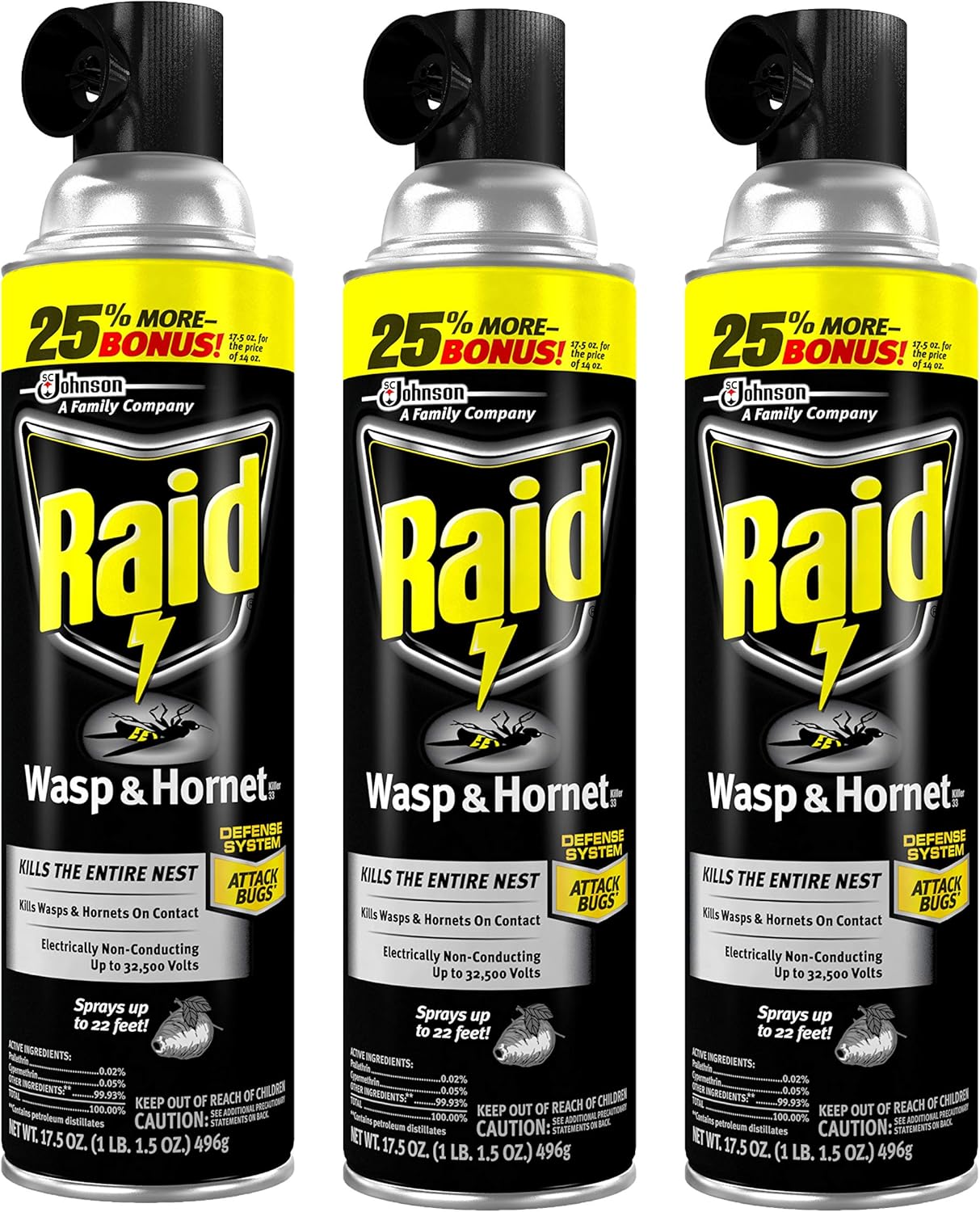If you’ve ever used wasp and hornet spray, you’ve probably noticed how quickly it knocks down these stinging pests. But have you ever wondered how long the effects of the spray actually last? Does it continue working after the initial application, or do the wasps just come back later? Let’s break it down.
How Wasp and Hornet Spray Works
Most wasp and hornet sprays contain pyrethroids and pyrethrins, which are chemical compounds that attack an insect’s nervous system. When sprayed directly on a wasp or hornet, these chemicals cause instant paralysis, making the insect drop to the ground within seconds. Some sprays also contain residual chemicals that linger for a while, helping to kill any wasps that come in contact with the treated area later.
These sprays work best when applied directly to wasps or their nests. However, the effectiveness of the spray depends on a few factors, including the type of wasps, the location of the nest, and whether the spray reaches deep inside the colony.
Does Wasp Spray Provide Long-Term Protection?
While wasp and hornet sprays are highly effective for immediate elimination, they do not always provide long-term protection. Here’s why:
- Limited Residual Effect – Most aerosol sprays evaporate within a few hours to a few days. Some may leave a light chemical residue that lasts for a couple of weeks, but this is not always enough to prevent new wasps from returning.
- Nest Location Matters – If the nest is in an open area, the spray can coat more of the colony. However, if the nest is hidden inside a wall or underground, the spray may not reach the entire nest, allowing surviving wasps to rebuild.
- Wasp Reinfestation – Even if the spray kills most of the colony, new wasps can move in if the nest isn’t removed. If a queen survives or a new one arrives, a fresh colony could take over the space.
The Best Way to Ensure Long-Lasting Wasp Control
If you want to keep wasps away for good, one treatment with spray may not be enough. Here are a few extra steps to take:
- Apply the spray at the right time. The best time to treat a nest is at dawn or dusk, when most wasps are inside and less active.
- Remove the nest after 24 hours. Even if the wasps appear dead, leaving the nest in place can attract new colonies looking for shelter.
- Use insecticidal dust for hidden nests. If the nest is in a wall, under siding, or in the ground, a spray might not reach deep enough. Insecticidal dust is a better long-term solution because it sticks to the wasps and gets carried inside the nest.
- Seal up entry points. Once the nest is gone, block any gaps or holes that could allow new wasps to enter and build another colony.
When to Call a Professional
If you’re dealing with a large or aggressive nest, it’s best to call a pest control expert. Wasps can become extremely territorial and attack in swarms if they feel threatened. Professionals have the right equipment and experience to remove nests safely and effectively.
Final Thoughts
Wasp and hornet spray is a fast and effective solution for killing wasps on contact, but its long-term effects can vary. While some sprays leave behind a residual effect that lasts for days or weeks, it’s not a guaranteed long-term fix. For the best results, spray the nest at the right time, remove it afterward, and take steps to prevent future infestations.
If wasps keep coming back or the nest is in a hard-to-reach place, consider calling a professional to handle the problem safely.




